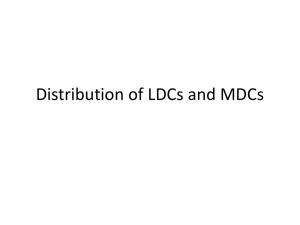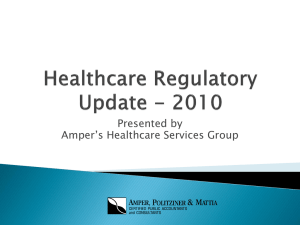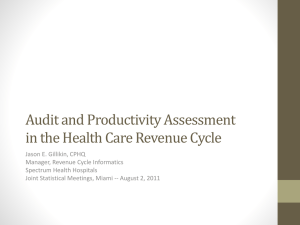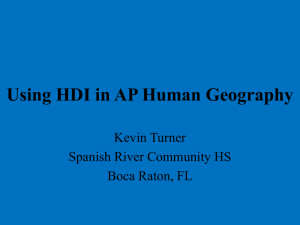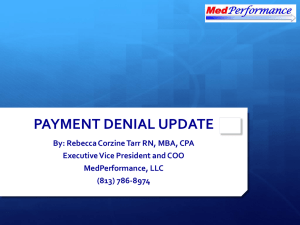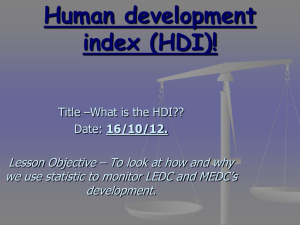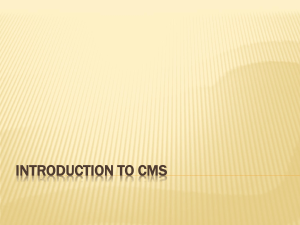Auditing the Medicare Advantage Product
advertisement
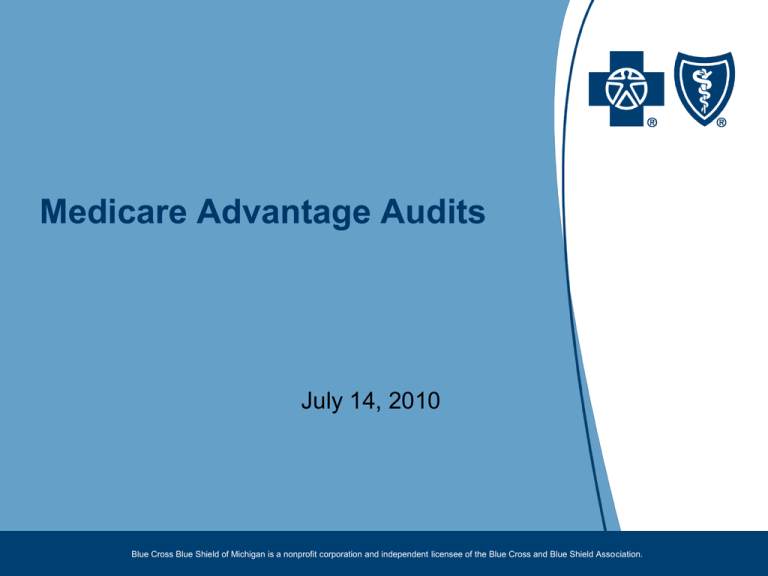
Medicare Advantage Audits July 14, 2010 Blue Cross Blue Shield of Michigan is a nonprofit corporation and independent licensee of the Blue Cross and Blue Shield Association. Why audit MA utilization? • Implicit expectation in CMS Fraud, Waste and Abuse guidelines • No other review of billing accuracy prior to this audit engagement • In 2007 and 2008 precertification and pre-note were optional • Terms and Conditions allow retrospective audits Terms and Conditions 2007-2008 • • • • Private fee-for-service product No contracts between BCBSM and hospitals Hospitals were considered “deemed” Deemed provider requirements described in T&C – Hospitals must comply with all Medicare and other federal health care program laws, regulations and program instructions that apply to the services furnished to members, including inspections and audits. • Refer to BCBSM website for Terms and Conditions www.bcbsm.com/ma/terms_and_conditions.shtml Why outsource? • To gain industry expertise • Limit ramp up time • Selected Health Data Insights because they were the premier audit vendor for the CMS Recovery Audit Contractor (RAC) demonstration project. – HDI also selected for RACs in the western region – Handle the Payment Error Rate Measures (PERM) nationwide for Medicaid – Audit vendor for Humana and other commercials What’s happened so far… • Two complex audit categories established – DRG validation – Short stay hospitalizations • Through June 2010, HDI has requested over 14,000 medical charts – Monthly requests to minimize resource impacts at hospitals – Volume of chart request varies by facility-averages 14.5% of annual inpatient admissions – Initial findings are consistent with RAC demonstration project findings • Facilities not providing medical records will receive a Technical Denial letter which denies the entire stay When hospitals disagree with the findings • Appeals Process – 1st level-internal to HDI – 2nd level-external to Peer Review Organization of Michigan (PROM) • BCBSM tested the initial short stay results – 22 randomly selected medical records were reviewed independently by a BCBSM Medical Consultant. – Our findings were consistent with HDI • BCBSM found that IS/SI not met • Level of care was not as an inpatient but at the “observation or outpatient” level. Concerns Voiced by Hospitals • Increased audit activity by all payers • High volume of medical chart requests • Confusion about InterQual vs. CMS guidelines • Want more rationale for findings on HDI reports • Prefer batch response to continuous updates • Process is different from RAC and other BCBSM audits Understanding the differences • RAC audits versus this one – – – – Timelines are different Appeals – PROM versus CMS designated entities Recoveries done after appeals not before Not charging hospitals interest • Both follow CMS reimbursement policies HDI Audit Timelines • • • • • • Medical Record Requests – submit within 45 days HDI Findings – within 90 days Hospitals may appeal 1st level – within 50 days HDI response – within 45 days Hospitals may appeal 2nd level within 20 days HDI response - within 45 days Outpatient Re-bill • • • • • • • • When inpatient care is denied, hospitals can bill for ancillary services Must generate a new outpatient paper claim Follow CMS guidelines regarding services that can be re-billed (http://www.cms.hhs.gov/manuals/Downloads/bp102c06.pdf) Observation services and surgical procedures are not payable ancillary services Reference the claim number of the short stay denial in the remarks section of the outpatient re-bill Give paper copy re-bills to your provider consultant for processing Submission of an electronic re-bill outside the timely filing limits will reject Follow the CMS Limitation on Liability provisions for member liability
